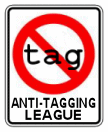From the Poobah Files: The Day Evergreen Disappeared
 In the spring of 1974, I was a student at the University of Kentucky in Lexington. Each time I hear of a tornado, I think back to that April day and remember the record-breaking 148 tornadoes that tore a wide swath of destruction through the Ohio Valley. More than 5,000 people were injured and 315 killed.
In the spring of 1974, I was a student at the University of Kentucky in Lexington. Each time I hear of a tornado, I think back to that April day and remember the record-breaking 148 tornadoes that tore a wide swath of destruction through the Ohio Valley. More than 5,000 people were injured and 315 killed.I heard the first report about the storms while driving to work at a local newspaper. A forecaster at Louisville's Standiford Field had just delivered a warning when he spotted the largest twister to hit Louisville touch down across the airport. The next day I learned the tornado had crossed the airport, and a nearby freeway, before leveling Freedom Hall, the huge exhibition building at the state fairgrounds. It continued into Louisville's downtown, damaging dozens of buildings and killing several people.
I raced for the office because I knew things would be heating up in the newsroom. I arrived not long before the first warnings were broadcast for our area.
The entire staff spent the night huddled in the darkened print shop in the basement of our building. Some slept on the floor, others curled up more comfortably in huge dumpsters filled with curiously comfortable shredded paper. We took turns going outside to catch radio reports about the storms. We mostly heard more dead air because nearly every electrical grid in the state had been wiped out by early evening and most stations were off the air.
Those inside tried to use the intermittent phones to contact civil defense, families, friends, or anyone else who could provide personal news or information for the morning edition. By midnight, we'd reached no one and realized there would be no morning edition.
At about 7 am, the lights came back on. We, and apparently our immediate vicinity, seemed no worse for wear. When the wire machines finally clattered back to life, they were midway transmitting the usual morning farm reports. The news was of pork bellies and the price of tobacco rather than the death and destruction all around us.
When tornado news finally did begin coming through, it was universally bad. Several Kentucky towns, including Brandenburg, were totally flattened. When I visited Brandenburg later that week, I found the filthy outlines of a town where nothing stood taller than three feet high except for the town's water tower, which got through unscathed. Farther north, Xenia, OH had also been hit. A larger town than most of the Kentucky burgs, it became the nexus of tornado coverage much like New Orleans stood in for the entire Gulf coast in the wake of Katrina.
Access to the hardest hit areas was tough, so several of us volunteered for rescue and cleanup crews so we could get into the damage areas. My assignment was to join a group of about 30 UK students sent to clean up a crook in the road near Frankfort. Its name was Evergreen.
It was a long, uncomfortable ride in the back of a U-Haul truck. We rode in darkness with our equipment scattered around us. The big rolling door remained closed because dust and debris kept rolling in when it was open.
As we approached Evergreen, the truck repeatedly lurched as it went off road and crept around downed power lines and trees. When we finally rolled to a stop, I flung the rollup door open and was immediately engulfed in a choking cloud of fine-grained dust, yellow and pink bits of insulation, and swirling papers.
The air was alive with the sounds of bedlam. Workers yelling, heavy equipment and chainsaws howling like banshees, barking rescue dogs, and hammering overwhelmed our own conversations and the far-off sounds of sirens. The air tasted sour and foul and our eyes stung from the grit.
For as far as I could see, a crazy carpet of wood and scrap metal covered the gently rolling pastures. Personal effects lay everywhere. Next to the truck, a family picture lay in the middle of the road - a Mom, Dad, and young daughter ripped from their frame and crushed under the weight of rescue vehicles. There were clothes strewn in the trees and toys - bent and twisted - lay about. Nearby, a family station wagon was upended in a swimming pool next to a naked concrete slab with a hedge under where the front windows of the former house used to be.
Our cleanup area was the Evergreen Baptist Church and our first encounter with it was impressive. The steeple had flown off in one piece and landed miraculously upright in a field about 500 yards away. The cross was intact and the copper sheeting on the roof still held fast. The sanctuary roof had torn away and the pews sat out in the open, covered with dirt and bits of stained glass. Most still held hymnals and donation envelopes in their seatback racks. Signs at by the altar still held the passages and hymn references from last Sunday's services. Up behind the altar we found the baptismal pool filled with unholy and stinking water, shredded Bibles, and bits of altar flowers.
The two-story community section was splayed open to nature. Roughly half of each room was missing, collapsed in a heap, or flung out across the hills in the form of broken wood and vinyl siding. In the half rooms that were left, things were oddly undisturbed. Pictures still hung on the walls, straight as they day they were put up. The pastor's desk faced out into space with papers and his personal Bible still on top. Frilly drapes hung undisturbed, covering unbroken windows facing out on more destruction on the other side of the undamaged walls.
A huge oak that once shaded the front steps on sweltering Bluegrass days was missing all but the sturdiest of its limbs. A strip of aluminum window frame punctured one side, just above a 2X4 that had gone clean through the thickest part of the trunk.
I remember working harder than I ever had in my life, pausing only for the occasional drink or donut from the Red Cross and Salvation Army teams that passed through periodically. All of us chopped and hacked the larger debris into more manageable pieces while others hauled it off into great heaps. Periodically, some mechanical monster would rumble through, pick the filthy stuff up in its great steel maw, and drop it into a waiting dump truck. Evergreen was being moved, stick-by-stick, to a dump.
Equipment was short, so everything was pressed into service. A local farmer who owned a prized team of Belgian draft horses hitched them to a huge and ancient cargo wagon and filled in as a makeshift dump truck. He told me his own house and his daughter's mobile home were gone. He said, “Hell, I ain't got nothin' to worry about. I'm alive. The kids is alive. We can rebuild the house.” He smiled though a few soft tears. I couldn't tell if they were from the dust or from the shock.
After 12 hours, all 30 of us climbed back into the truck for the ride back to Lexington. The door stayed closed then too. While we'd been a fairly chatty lot on the trip down, there was nothing but stunned and exhausted silence on the way back.
When we arrived and climbed slowly out of the truck, I looked around. All of us looked more of less the same. Our faces were streaked black with the ever-present dust, tiny trails carved in the dirt by steams of our sweat. Those who'd worn gloves had brilliant white hands at the ends of coal miner arms. Clothes were torn. A few still wore their disposable dust masks up on top of their heads, to tired for the trouble to take them down.
I went home for a quick shower and a bite to eat before returning to the paper. We'd arranged with another paper to print for us until our damaged plant in Cynthiana could get back on its feet. Even though I was the paper's production manager, I was pressed into service as a reporter. My account of the day in Evergreen ran page one, above the fold. It was the first story I'd ever had published. Although I can't recall many of the details, I'm sure it was much like this post, mostly a catalog of emotions rather than dry facts about how many millions of dollars in damage had occurred.
But, I still remember how the story ended. It was much like this post as well. I wrote about arriving back home and said, "I'm not sure how I feel right now. There were so many things to see and do and feel all day. I was almost too busy to feel until now. And then it occurred to me that what I really felt like as a dirty sweat sock and it seemed to me that was as apt a description as any."
Truth Told by Omnipotent Poobah, Monday, March 13, 2006






